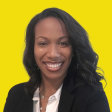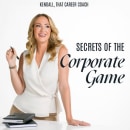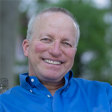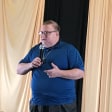Professional Development Speakers
You've got a schedule packed with sessions and a room full of people who expect to learn something useful.
But finding someone who can speak on growth, leadership, or skills development without sounding like a textbook? That's tough.
You're probably wondering... how do I find the right professional development speakers who actually connect with real audiences? Good question.
This guide spotlights standout professional development speakers who bring clarity, experience, and real advice to the mic. We're talking about people who've led teams, coached others, and helped businesses grow from the inside.
I've seen how the right speaker can shift a room's energy and spark real conversations after the event is over. Whether you're planning a conference, hosting a podcast, or building a summit lineup, these are the folks who show up ready to deliver.
Scroll through to explore professional development speakers who know their stuff - and might be the perfect fit for your next event.
Top Professional Development Speakers List for 2026
Kaneshi Hart
Transforming first-time managers from chaos to confident leaders
Kendall Berg
Empowering professionals to conquer the career game!
Ken Williams
Get Unstuck, Rewrite Your Career Story - You Deserve Better!
Miste Marie Anders Clemons
Empowering your career journey, one resume at a time
Erin Treacy
Empowering leaders to find clarity and confidence in chaos.
Mark Papadas
The Be Great Guy" bringing personal development to kids. Imagine Tony Robbins meets Charlie Brown!
Ken Sher
Empowering leaders to thrive through trust and authentic connection
Cath DeStefano
Empowering humans with essential people skills, one connection at a time!
Fern Chan
Presentation Jedi Master Banishing Death By PowerPoint To A Galaxy Far Far Away
Jeff Klein
Transforming speeches into clients, one stage at a time.
What Makes a Great Professional Development Speaker
The best speakers in this space blend deep subject-matter expertise with emotional intelligence. They know their content inside out, but they also know how to read a room, pivot when needed, and connect with people from different backgrounds. Whether they're speaking to a room full of corporate executives in Singapore or a virtual summit of solopreneurs in Toronto, they adapt without losing authenticity.
But here's the kicker: storytelling is their secret weapon. Great professional development speakers don't lecture-they lead you through a journey. They might share a case study from a failed startup in Berlin or a breakthrough moment from a teacher in Nairobi. These stories aren't fluff. They're tools that make lessons stick.
And finally, they're generous. They don't gatekeep knowledge. They give away frameworks, templates, and real-world strategies that attendees can apply immediately. That's what makes people remember them-and invite them back.
So if you're looking for a speaker who'll light up your event, don't just look at their bio. Watch how they make people feel, think, and act differently after they speak. That's the real test.
How to Select the Best Professional Development Speaker for Your Show
1. Define Your Audience and Outcome. Are you speaking to early-career professionals, team leaders, or C-suite executives? What do you want them to walk away with-motivation, a new skill, or a mindset shift? Clear answers here will shape your speaker criteria.
2. Search Smart Using Platforms Like Talks.co. Use speaker discovery tools like Talks.co to browse vetted speaker profiles. Filter by topic, experience level, region, or even delivery style. Look for speakers who've been featured on similar shows or who specialize in your niche.
3. Review Their Content in Context. Don't just watch their TEDx talk. Check how they perform in podcast interviews, webinars, or panel discussions. A speaker who shines on stage might not be as engaging in a virtual format. Look for versatility.
4. Check Their Speaker Page and Testimonials. A strong speaker page should include past appearances, audience feedback, and sample topics. Look for testimonials from hosts like you. Did they deliver value? Were they easy to work with?
5. Reach Out and Ask the Right Questions. When you connect, ask about their process. Do they tailor content to your audience? Can they promote the episode to their network? Are they open to pre-show planning?
Bonus tip: If you're unsure, run a test episode or panel. Some speakers shine brighter in conversation than in monologue. Trust your gut, but back it up with research.
How to Book a Professional Development Speaker
1. Start with a Shortlist. Use platforms like Talks.co to create a shortlist of speakers who align with your topic and audience. Look for those with a strong speaker page, relevant experience, and a track record of engaging talks.
2. Reach Out with a Clear Pitch. When you message them, be specific. Mention your show's name, audience size, topic focus, and what you're looking for in a guest. Example: "We're hosting a virtual summit for HR leaders in Asia, and we'd love to feature your insights on upskilling remote teams."
3. Schedule a Pre-Call (Optional but Powerful). A 15-minute call helps you align expectations, discuss format, and build rapport. Ask how they typically prepare, what topics they're excited about, and if they're open to promoting the episode.
4. Confirm the Details in Writing. Send a confirmation email or calendar invite with the date, time, platform (Zoom, Riverside, etc.), and any prep materials. Include a short brief on your audience and preferred talking points.
5. Promote and Prep. Share your promotional assets with them in advance-graphics, links, hashtags. If they're active on LinkedIn or Twitter, tag them in teaser posts. This increases reach and builds momentum.
6. Follow Up After the Talk. Thank them, share the replay link, and ask for feedback. If it went well, consider inviting them back or referring them to other hosts in your network.
Pro tip: Keep a spreadsheet of booked speakers, topics, and feedback. It'll make future bookings 10x easier.
Common Questions on Professional Development Speakers
What is a professional development speaker
They might speak on topics like leadership, communication, time management, diversity and inclusion, or digital transformation. What sets them apart is their ability to translate complex ideas into practical takeaways that professionals can apply immediately in their roles.
You'll find professional development speakers in a variety of settings-from corporate retreats in New York to online summits hosted in Melbourne. They might be former executives, educators, coaches, or entrepreneurs, but they all share one thing: a passion for helping others level up.
Some are industry-specific, like a cybersecurity expert speaking to IT teams, while others offer cross-functional insights, like a productivity coach helping remote teams thrive. The format can vary too-keynotes, workshops, panels, or even fireside chats.
In short, a professional development speaker is a catalyst for growth. They help individuals and teams think bigger, act smarter, and perform better in their professional lives.
Why is a professional development speaker important
These speakers don't just inform-they inspire action. They're skilled at connecting the dots between theory and practice, helping professionals understand not just what to do, but why it matters. For example, a speaker on emotional intelligence might help a sales team in London close more deals by teaching them how to read client cues more effectively.
In fast-changing industries like tech or healthcare, staying current is essential. A professional development speaker can distill the latest trends into digestible insights. Think of someone like Simon Sinek breaking down leadership in a way that's both accessible and deeply strategic.
They also bring outside perspective. Internal training can become an echo chamber, but an external speaker introduces fresh thinking. Whether it's a DEI strategist from South Africa or a startup coach from Silicon Valley, they challenge assumptions and spark new ideas.
Ultimately, these speakers help organizations stay competitive by nurturing their most valuable asset: people. When employees feel empowered and equipped, retention improves, innovation increases, and culture strengthens.
What do professional development speakers do
- Deliver Expert Content. They share insights on topics like leadership, communication, productivity, and innovation. Whether it's a keynote at a global HR summit or a virtual workshop for freelancers, their content is tailored to the audience's needs.
- Facilitate Learning Experiences. Many speakers go beyond lectures. They design interactive sessions, lead breakout discussions, or use real-time polling to engage participants. For example, a speaker on conflict resolution might run role-play exercises during a corporate retreat.
- Adapt to Diverse Formats. From podcasts and webinars to in-person conferences and hybrid events, professional development speakers know how to adjust their delivery. A speaker who thrives on stage might also offer downloadable resources or follow-up coaching.
- Inspire Behavior Change. The goal isn't just to inform-it's to shift mindsets. A speaker on time management might introduce a new framework that helps a team reduce meeting fatigue. The best speakers leave audiences thinking differently and acting with intention.
- Collaborate with Hosts and Organizers. They often work closely with event planners, podcast hosts, or HR departments to align messaging with goals. This might include customizing content, co-creating promotional materials, or participating in Q&A sessions.
In essence, professional development speakers are strategic partners in growth. They bring clarity, energy, and expertise to help individuals and teams reach their next level.
How to become a professional development speaker
1. Define Your Niche and Expertise.
- Focus on a specific area of professional development: leadership, communication, productivity, DEI, or remote team building.
- Ask yourself: What unique perspective or experience do I bring? This clarity helps you stand out in a crowded field.
2. Build Your Signature Talk.
- Craft a compelling keynote or workshop that solves a real problem for your audience.
- Use storytelling, data, and actionable takeaways. Think of it as your flagship product.
- Record a sample version and post it on your speaker page (like the ones on Talks.co).
3. Create a Speaker Page.
- Include your bio, topics, testimonials, a professional headshot, and a video reel.
- Platforms like Talks.co make this easy and help connect you with event organizers.
4. Start Small, Then Scale.
- Offer to speak at local meetups, online summits, or internal company events.
- Use these opportunities to refine your delivery and gather testimonials.
- Share every talk on LinkedIn or your website to build visibility.
5. Network with Hosts and Event Planners.
- Reach out to podcast hosts, summit organizers, and HR leaders.
- Use platforms like Talks.co to get matched with virtual event hosts looking for speakers like you.
- Be proactive: pitch yourself with a clear value proposition.
6. Keep Learning and Iterating.
- Watch top speakers, attend speaker training events, and gather feedback.
- Update your content regularly to stay relevant to current workplace trends.
Becoming a professional development speaker isn't about being the loudest voice in the room. It's about being the most helpful. Start with service, and the opportunities will follow.
What do you need to be a professional development speaker
First, you need subject matter expertise. This doesn't mean you need a PhD or 20 years of experience, but you do need a deep understanding of the topic you're speaking about. Whether it's leadership, time management, or emotional intelligence, your insights should be grounded in real-world application. For example, if you're speaking on remote team collaboration, having led a distributed team or consulted with companies on virtual workflows gives you credibility.
Second, you need strong communication skills. This includes public speaking, storytelling, and audience engagement. You should be able to adapt your delivery for different formats: webinars, live events, or hybrid summits. Practicing with smaller groups or joining speaker training programs can help you sharpen these skills.
Third, you need a platform. This is where Talks.co comes in. Having a speaker page with your bio, topics, testimonials, and a video reel makes it easier for event organizers to find and book you. It also helps you look professional and prepared.
Finally, you need a network. Building relationships with other speakers, event hosts, and industry leaders opens doors. Engage on LinkedIn, attend virtual summits, and offer value before asking for a spot on stage. Being helpful and visible is often more effective than cold pitching.
In short, becoming a professional development speaker is about combining knowledge, communication, visibility, and connection. When you have all four, you're not just speaking-you're leading.
Do professional development speakers get paid
Many speakers start by offering free talks to build their portfolio. Over time, as they gain credibility and results, they begin charging for their sessions. According to SpeakerHub and the National Speakers Association, beginner speakers might earn $500 to $2,500 per event, while seasoned professionals can command $10,000 or more per keynote.
Here are a few variables that influence whether and how much a speaker gets paid:
- Experience Level: New speakers often speak for free or in exchange for exposure. Established speakers with published books or media appearances can charge premium rates.
- Event Type: Corporate conferences and industry summits usually have budgets for speakers. Nonprofits, schools, or community events may offer lower fees or none at all.
- Format: In-person keynotes tend to pay more than virtual webinars, though this is changing with the rise of high-impact online events.
- Region: Speakers in North America and Europe often earn more than those in emerging markets, though global demand is growing.
Some speakers also negotiate travel, accommodation, and per diem costs. Others bundle their speaking with consulting or training packages.
So, yes-professional development speakers do get paid. But the path to consistent income often involves strategic positioning, strong branding, and a willingness to start small and grow.
How do professional development speakers make money
1. Paid Speaking Engagements.
- Keynotes at conferences, corporate retreats, or industry events.
- Workshop facilitation or breakout sessions.
- Rates vary from $500 to $25,000+ depending on experience and audience size.
2. Virtual Summits and Webinars.
- Many speakers get paid to appear on digital stages or host their own events.
- Platforms like Talks.co help speakers connect with virtual event organizers.
- Monetization can include speaker fees, affiliate commissions, or lead generation.
3. Corporate Training and Consulting.
- Speakers often offer follow-up services like leadership coaching or team development programs.
- These engagements can be more lucrative than one-off talks.
4. Books and Digital Products.
- Publishing a book boosts credibility and creates passive income.
- Online courses, templates, or toolkits can be sold to attendees or through your website.
5. Sponsorships and Brand Deals.
- Influential speakers sometimes partner with brands aligned with their message.
- These deals can include sponsored talks, social media promotion, or co-branded content.
6. Membership Communities or Masterminds.
- Some speakers monetize by creating ongoing communities for professional growth.
- These can be hosted on platforms like Circle or Kajabi.
In short, professional development speakers don't rely on a single income source. They build an ecosystem around their expertise, using speaking as the front door to deeper offerings.
How much do professional development speakers make
According to the National Speakers Association:
- Entry-level speakers typically earn $500 to $2,500 per talk.
- Mid-level speakers with a few years of experience and a solid brand can earn $3,000 to $7,500 per event.
- Top-tier speakers with books, media appearances, or a strong corporate following can command $10,000 to $25,000+ per keynote.
Here's a quick comparison table:
| Experience Level | Avg. Fee per Talk | Annual Income (Est.) |
|---|---|---|
| Beginner | $500 - $2,500 | $10,000 - $50,000 |
| Mid-Level | $3,000 - $7,500 | $75,000 - $150,000 |
| Top-Tier | $10,000+ | $200,000 - $1M+ |
- Frequency of Gigs: A speaker doing 50 paid talks a year at $5,000 each earns $250,000.
- Add-On Services: Offering consulting, training, or digital products can double or triple income.
- Audience Size and Budget: Corporate clients pay more than nonprofits or schools.
- Geographic Reach: Speakers who work globally or virtually have more opportunities.
Some speakers also earn through affiliate marketing, book royalties, or licensing their content. The most successful treat speaking as a business, not just a gig.
How much do professional development speakers cost
Typical Fee Ranges:
- Local or Emerging Speakers: $500 - $2,500. Ideal for small businesses, schools, or community events.
- Mid-Tier Professionals: $3,000 - $7,500. These speakers often have a few years of experience, a strong online presence, and a refined presentation.
- Top-Tier Experts: $10,000 - $25,000+. These are authors, media personalities, or consultants with a proven track record.
- Celebrity Speakers: $50,000+. Think Simon Sinek, Brené Brown, or Tony Robbins. These fees include brand value and audience draw.
Factors That Affect Cost:
- Event Type: Corporate conferences usually have bigger budgets than non-profit workshops.
- Duration: A 60-minute keynote costs less than a full-day workshop.
- Customization: Tailored content or industry-specific training may increase the fee.
- Travel and Logistics: In-person events may require covering flights, hotels, and per diem.
Virtual vs. In-Person:
- Virtual speaking fees are generally 30-50% lower than in-person, though this gap is narrowing as digital events become more sophisticated.
Bundled Services:
- Some speakers offer packages that include follow-up coaching, training materials, or access to online courses.
In short, the cost of a professional development speaker depends on the value they bring, not just the time they spend on stage. Organizers should consider ROI, not just the price tag.
Who are the best professional development speakers ever
- Stephen R. Covey - Author of 'The 7 Habits of Highly Effective People'. His frameworks are still used in corporate training worldwide.
- Zig Ziglar - A pioneer in motivational speaking and sales training. His Southern charm and practical wisdom influenced generations.
- Jim Rohn - Known for his timeless insights on personal development and business philosophy. He mentored Tony Robbins.
- Dale Carnegie - Though he passed away decades ago, his teachings on communication and influence ('How to Win Friends and Influence People') remain foundational.
- Brian Tracy - A prolific speaker and author on productivity, goal setting, and leadership.
- Les Brown - Famous for his high-energy delivery and messages about resilience and potential.
- John C. Maxwell - A leadership expert whose books and talks have been translated into over 50 languages.
- Tony Robbins - Though often labeled a motivational speaker, his work in business strategy and peak performance makes him a staple in professional development.
- Louise Hay - Known for her work in self-empowerment and mindset, which has influenced professional coaching.
- Marshall Goldsmith - A top executive coach and speaker on leadership behavior and change.
These speakers didn't just inspire-they taught frameworks that professionals still use today.
Who are the best professional development speakers in the world
- Simon Sinek (UK/USA) - Known for 'Start With Why', Sinek speaks on leadership, purpose, and organizational culture.
- Brené Brown (USA) - A research professor turned speaker, she focuses on vulnerability, courage, and workplace empathy.
- Robin Sharma (Canada) - Author of 'The Leader Who Had No Title', Sharma blends personal mastery with leadership development.
- Erica Dhawan (USA/India) - A thought leader in digital body language and collaboration in hybrid teams.
- Gary Vaynerchuk (USA) - While known for marketing, his talks on hustle, mindset, and entrepreneurship are staples in professional development.
- Carla Harris (USA) - A Wall Street veteran and dynamic speaker on leadership, authenticity, and career advancement.
- Dan Pink (USA) - Author of 'Drive' and 'To Sell is Human', Pink offers science-backed insights on motivation and performance.
- Juliet Funt (USA) - Specializes in productivity and reclaiming white space in the workplace.
- Tima Elhajj (Australia) - A rising voice in leadership and emotional intelligence, especially in the Asia-Pacific region.
- Minda Harts (USA) - Focuses on equity and career development for women of color in corporate environments.
These speakers are not only delivering keynotes-they're shaping how companies and individuals grow in today's fast-changing world.
Common myths about professional development speakers
1. Myth: Professional development speakers are just motivational cheerleaders.
This one's common, especially in corporate circles. People assume these speakers show up, drop a few inspirational quotes, and leave. But the truth? The best professional development speakers are educators, strategists, and facilitators. Take Simon Sinek, for example. His talks go beyond motivation - they're grounded in behavioral psychology and leadership theory. He's not just hyping people up, he's shifting how they think about purpose and performance.
2. Myth: You need to be famous or have a bestselling book to become a professional development speaker.
Fame helps, sure. But it's not a prerequisite. Many successful speakers build their careers through niche expertise and consistent delivery. Think of someone like Pamela Slim. She built her reputation by helping entrepreneurs transition from corporate jobs. No blockbuster book launch, just years of practical insight and community building.
3. Myth: Speaking is a side hustle, not a real career.
This myth is especially persistent in regions where traditional employment is still seen as the gold standard. But professional development speaking is a full-fledged career path. Speakers like Erica Dhawan have built global businesses around their thought leadership. They consult, train, and speak - and it all stems from the stage.
4. Myth: You have to speak in-person to be effective.
Virtual events have changed the game. With platforms like Zoom, Hopin, and even Clubhouse (for audio-only), speakers can reach global audiences without leaving their homes. The rise of virtual summits has shown that impactful development doesn't require a ballroom and a projector.
5. Myth: All professional development speakers talk about the same things.
Not even close. Topics range from emotional intelligence in healthcare to agile leadership in tech startups. The field is as diverse as the industries it serves. What unites these speakers isn't content - it's the ability to translate insight into action.
Case studies of successful professional development speakers
Then there's Kwame Christian. A lawyer by training, he started speaking about negotiation and conflict resolution. What made him stand out wasn't just his legal background - it was his ability to make negotiation feel human. His podcast, books, and keynote talks now reach audiences in law, healthcare, and tech. He's proof that niche expertise, when delivered with clarity, can scale globally.
Another standout is Dorie Clark. She began her career in journalism and nonprofit communications. Over time, she carved out a space in professional development by helping people build personal brands and thought leadership. Her talks are packed with actionable strategies, not fluff. She's spoken at Google, the World Bank, and Harvard Business School.
In South Africa, Vusi Thembekwayo took a different route. He started as a motivational speaker in youth programs. But he evolved his message into business strategy and leadership. Now, he's a venture capitalist and keynote speaker whose insights resonate from Nairobi to New York.
What ties these stories together? None of them followed the same path. Some came from academia, others from business or media. But they all found a way to turn their unique lens into value for others. That's the real secret behind successful professional development speakers: they don't just speak, they serve.
Future trends for professional development speakers
- Hybrid delivery is the new normal.
Audiences now expect flexibility. That means speakers must be just as effective on a Zoom call as they are on a stage. Tools like Miro and Mentimeter are becoming standard for interactive sessions. Expect more speakers to invest in home studios and virtual facilitation certifications.
- Micro-learning formats are gaining traction.
Long keynotes are out. Bite-sized, high-impact sessions are in. Think 15-minute power talks, 30-minute workshops, or even asynchronous video series. This trend is especially strong in fast-paced industries like tech and finance, where time is currency.
- DEI and mental health are no longer niche topics.
Speakers who specialize in diversity, equity, inclusion, and wellbeing are in high demand. But organizations are looking for depth, not just buzzwords. Speakers need to bring research, lived experience, and practical frameworks.
- Data-driven storytelling is becoming essential.
Audiences want more than anecdotes. They want evidence. Speakers who can blend personal stories with data - like Brené Brown or Adam Grant - are setting the standard. Expect more speakers to cite studies, use visuals, and reference real-world outcomes.
- Global perspectives are being prioritized.
Companies are increasingly remote and multicultural. That means speakers who can address cross-cultural communication, global leadership, and regional nuances will stand out. This opens doors for speakers from non-Western backgrounds to bring fresh insights.
In short, the future belongs to speakers who are agile, authentic, and audience-focused. It's not about being the loudest voice in the room. It's about being the most relevant.
Tools and resources for aspiring professional development speakers
1. Talks.co. This platform connects speakers with podcast hosts, making it easier to build visibility and credibility. Great for testing your message and reaching niche audiences.
2. SpeakerHub. A marketplace where speakers can list their profiles, get discovered by event organizers, and access training materials. Tip: Use their analytics to see which topics are trending.
3. Canva. For creating sleek, on-brand slide decks and social media graphics. Pro tip: Use their presentation templates to keep your visuals consistent and professional.
4. Zoom and StreamYard. Essential for virtual delivery. StreamYard is especially useful if you want to livestream to multiple platforms or run hybrid events.
5. Notion. Organize your content, track speaking opportunities, and build a knowledge base. It's like your personal command center.
6. LinkedIn Learning. Offers courses on public speaking, storytelling, and audience engagement. Ideal for brushing up on fundamentals or exploring new formats.
7. Airmeet. A virtual event platform designed for interactive experiences. If you're hosting your own summit or workshop, this is a solid choice.
8. The Speaker Lab Podcast. Hosted by Grant Baldwin, this podcast dives deep into the business of speaking. Listen for tips on pricing, branding, and finding your niche.
Each of these tools serves a different purpose: some help you get booked, others help you deliver better, and a few help you stay organized behind the scenes. Start with one or two, then scale up as your speaking career grows.









